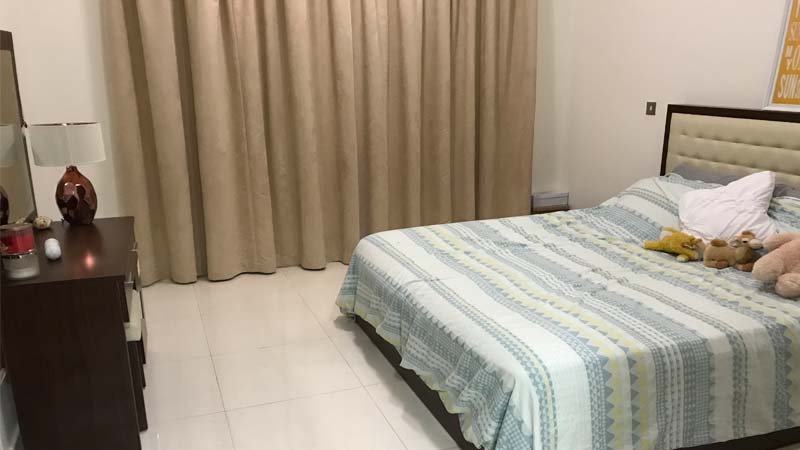12 Things I Wish I Knew Before Moving to the UAE to Teach English
So you've heard that teaching in the UAE (United Arab Emirates) is the best?! International TEFL Academy (ITA) graduate Katie Ayers provides you with some useful tips and insights if you're considering teaching English in the UAE.
Written By: Katie Ayers | Updated: September 26, 2023
Written By: Katie Ayers
Updated: September 26, 2023

I've really enjoyed teaching English in the UAE. However, there are a few things I would have loved to know before coming down here. So let me draw upon my experience to share with you some things I wish that I knew before moving to the UAE. I will share them into two categories: warnings and reality. Ready? Let's get started:
Teaching in UAE: Warnings
Think of these as "warning labels" that should be on job offers and the reality of what you will get working in the Middle East.
1. It's hot
Really hot. For about 6 months of the year (two of which are summer and you won’t be here) you’re basically stuck indoors. When you’re outside it feels like a combination of sitting on top of the sun and the sun sitting on top of you. You have to be really comfortable being inside for a lot of your existence here, however you choose to entertain yourself inside; reading, Netflix and chill, painting, cooking, whatever you chose. I get a bit stir crazy here; even the pool and ocean water can be too hot to enjoy in the summer. However, similar to a Chicago winter, eventually it ends and you can enjoy the outside again.
2. The school year is long
I think that this is actually true for all school calendars (especially if I was writing this at the end of a long year - which I am). Because of the setup of the school system and how rarely you get a break, besides winter and spring, the school year is exhausting. Another thing to consider is that the school year goes late, until the end of June or the beginning of July.

3. You need to be very flexible
Timing is just not as urgent here as it is in the USA. A date for something to be done is a suggestion, not a rule - unless it’s something YOU have to do and turn in, then there isn’t much wiggle room. You won’t get paid on time or on the same day each month, you’ll find out what day a holiday is the night before (Islamic holidays depend on the moon so they change) and you’ll think you have a day off and the government or school will change it last minute. You may also experience some incredibly unhelpful customer service and have to implement all of your patience to manage.
4. Don’t expect to make friends with many locals
You’ll find that the locals you work with are very kind and if you’re lucky, you will get invited to their villa for dinner. You may meet some nice locals out. You’ll just find a lot of your time is spent in places where you may not have opportunities to form these bonds. It’s not impossible though, I have a few wonderful local friends. However, for the most part, you will meet a lot of ex-pats. Maybe they’ll be from the US, Jordan, England, New Zealand, Palestine, Syria or Ireland and these people will become your people here.

5. You’ll notice that specific people work specific jobs (of course there is wiggle room in this)
There are a lot of laborers in the region. You’ll also come to understand (at a basic level) the inner workings of politics and wasta (essentially - who you know) in the region.
6. Environmental warning: If you love the planet, you recycle, or are living zero waste, it’s going to be a tough transition
My Emirate barely recycles and uses an absurd amount of plastic. It’s something that bothers me every single day. However, this is something the UAE is working on, but we are nowhere near San Francisco standards.
Teaching English in the UAE: The Reality
7. You’ll be making a pretty great salary, tax-free
Is teaching in Dubai worth it?
As an English teacher in Dubai, and more generally the UAE, you’ll live a very comfortable lifestyle in a highly sought-after city. For instance, you can expect to receive competitive benefits such as free accommodation or a housing allowance.
The cost of living is really what you make of it. Dubai is the home of “anything is possible” and they seriously mean it. If you want to zipline through the mountain, stand at the top of the highest building, lease a Maserati, take a drone taxi, stay at a 7-star resort - you can. But, it’ll cost you. It’s completely possible to live on 4000 AED per month (around $1000 USD), roughly a third of your base salary but it’s entirely up to you. For instance, I send home half of my salary each month because I’ve got bills at home - I’ve yet to save much, but I’m hoping next year I can.
Read more:
- What Are Salaries for English Teachers in the Middle East?
- How Much Do English Teachers Make in the UAE?

8. If you complete your contract you’ll get gratuity
This is standard in the UAE, although interpreted differently based on the business you’re employed at. You’ll get a month's salary for each year you complete. In some places, this is the base salary (excluding what is factored in for the housing) and in others it will be your complete salary.
9. You’re TEFL certification is a bonus but not the only thing that will get you out here
I use the strategies I learned at ITA often, it was a plus on my resume and in my application statement. I’ve also used my TEFL certification to allow me opportunities for leadership within the school. However, you’ll need a degree and a teaching certificate to get a job in a school here. There are some English language centers and university TEFL courses offered, but these are a bit easier to get if you’re already in the country.
Read more: 10 reasons why ITA offers the best TEFL Certification
10. There are only two big breaks at my school
The first one is Winter break, which is 3 weeks, and the second one is Spring break, which is 2. A fellow ITA alumna has four weeks total: two one-week breaks that split up the year. The long breaks are great for some serious adventuring. I have done a tour of Eastern Europe, Island hoped in Greece and next year I’ll be summiting Mount Kilimanjaro and doing a safari. You make enough money to comfortably travel and you’re in a pretty great location to get to Europe, Africa and Asia.

11. The location of the UAE also means you have a melting pot of people
There are people from all over the world in the Emirates, this also means you can get delicious food from all over the world. I find being surrounded by people from all over is also a pretty easy way for me to decide where I want to travel next.
12. The UAE is incredibly Western-friendly
Sure, you shouldn’t wear shorts and tank tops and show your tattoo. You technically shouldn’t be cursing in public or drinking but you do it. It’s important to keep hold of the culture that you live in because it’s very easy to just think you’re at home or in England. You’ll have almost all the things you want from home readily available here.
I highly recommend pursuing a teaching career in the UAE. The rewards greatly outweigh the challenges. It’s also incredible living in a country that’s customs and traditions are so different from what we might be used to. I’ve met so many new people on this adventure and my passions continue to grow.
Although there are challenges to living here, as anywhere else, do as Anthony Bourdain taught us “Open your mind, get up off the couch, move.”
Before you go, take a look at a day of my life teaching in UAE:
Posted In: Teach English in Middle East, Teach English in United Arab Emirates, Teach English in United Arab Emirates Must Read
Katie Ayers
A Seattle native who's heart is in Chicago, Katie holds an elementary education degree from Loyola Chicago. Since earning her TEFL certification from International TEFL Academy she first taught English abroad in Mexico before heading to the Middle East to seek new adventures in Ras al Khaimah, United Arab Emirates (U.A.E.). While teaching in the U.A.E. she also served as an ITA Alumni Ambassador, publishing numerous articles and videos about her experience teaching English in the heart of the Middle East.
Want to Learn More About Teaching English Abroad & Online?
Request a free brochure or call 773-634-9900 to speak with an expert advisor about all aspects of TEFL certification and teaching English abroad or online, including the hiring process, salaries, visas, TEFL class options, job placement assistance and more.
"I chose ITA because my best friend had been certified there. She told me all about the courses and helped me decide. I was most impressed by the country guides and the support for finding jobs after completing the certification that this organization provides."

- Carmen Oswalt
Teaches English in the UAE







